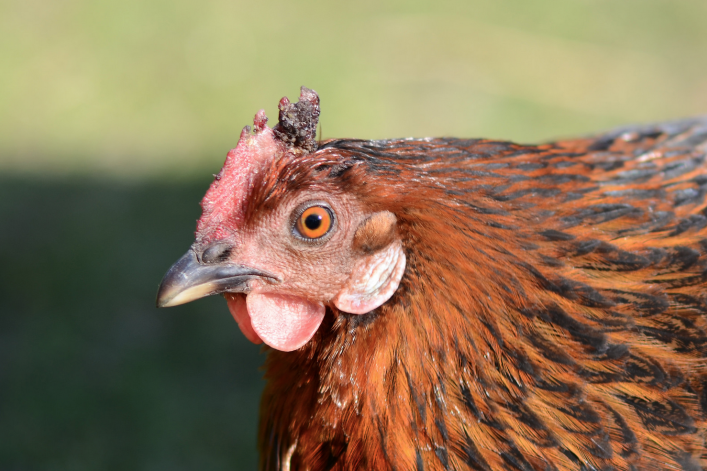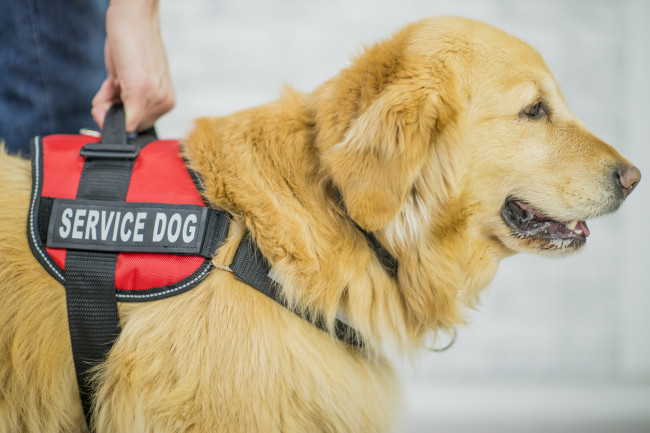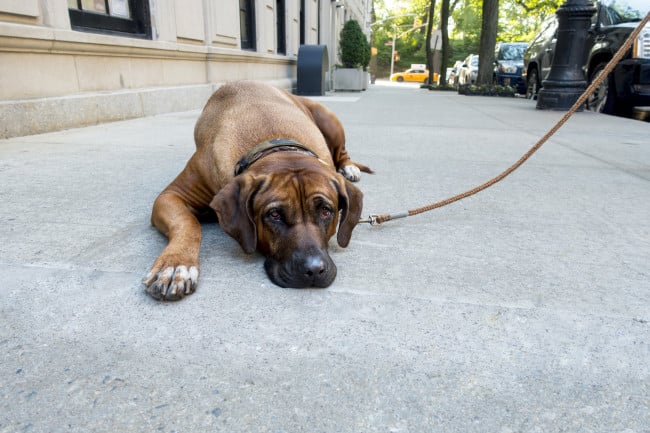7 strange pets you can (maybe) keep in or around your NYC apartment

iStock
Whether it's the notorious ferret ban or the occasional terrifying local tabloid story about an alligator lurking in an apartment, we hear all the time about pets you aren't allowed to have in New York apartments. You can check out the full list of species that are prohibited in New York City—including elephants, squirrels, and "non-human primates"—here. But what about the atypical pets you can have?
Technically, you can get away with just about anything these days if you get the right certification and a note from the doctor. Real estate attorney Dean Roberts tells us he has frequently assisted co-op boards in making sense of pet policies and that "the bar is very low" for determining what is an emotional support animal. In his practice he has come across a "therapy monkey" and a co-op-approved ocelot, among others.
[Editor's note: This story was originally published in 2015, and has been updated with new research.]
For our purposes, however, we're turning our attention to pets with at least something of a proven track record of being allowed in or around buildings. And really, haven't you always dreamed of having a swarm of bees to call your own?
1. Chinchillas
Animals like ferrets and squirrels are a no-go, but other small, furry, cage-bound critters (think hamsters, rabbits, guinea pigs, etc.) are allowed in New York. And this includes adorable, ultra-plush chinchillas.
These are probably allowed in all but the strictest of no-pet buildings.
2. Chickens
Whether they're the focus of a neighborhood feud in Park Slope or being used as quaint, egg-producing amenity bait in high-end listings, chickens have, improbably, been having something of a moment in New York lately. Roosters, geese, ducks, and turkeys are prohibited from living in the city, but chickens are perfectly legal, if not always popular.
"One of my co-op clients let a guy keep a flock of chickens on his terrace," says Roberts, explaining that the resident's elderly wife was ailing, and they thought the fresh eggs would give her a boost. For a guide to the logistics and costs (both fiscal and social) of becoming a chicken-owning New Yorker, we've got tips here.
3. Pigeons
Pigeons have been known to call NYC apartment buildings home—and not just the awnings and fire escapes. Typically kept in rooftop coops, pigeons are surprisingly easygoing, and popular with New Yorkers from all walks of life. As with other pets, though, if your building's owner can show that your pigeons are becoming a nuisance, be it their droppings ending up outside their designated area, or seed you use to feed them attracting rodents, you can be made to get rid of them, so be sure to stay on your neighbors' good side.
4. Parakeets, parrots, macaws, and other "non-predatory" birds
Like pigeons, and subject to a given building's pet policy and other legal standards, parakeets, parrots and macaws are legal to own in New York City. That's not to say it's a good idea to get a hyacinth macaw, which in addition to costing thousands of dollars and being an endangered species can be extremely loud, needs a lot of space and socializing, has a specialized diet, and can live up to 50 years, none of which are particularly compatible with New York apartment living.
5. Bees
The occasional horror story about a house or building inundated with tens of thousands of bees aside, urban beekeeping is actually a perfectly legal hobby. As with chickens and pigeons, this one's probably easier if you've got your own backyard or private roof access. In any event, city law does give the green light to "non-aggressive honey bees." The New York Time says it will run you around $800 to establish a hive. It might be a tough sell with your neighbors and building management, but the promise of fresh honey might work wonders in greasing the wheels.
6. Reptiles
This is where the rules get a little tricky: The city laws nix most kinds of snakes, as well as iguanas and turtles, but in reality, some buildings seem pretty willing to make exceptions, or look the other way entirely. Back in 2008 the Times profiled a family keeping a five-foot iguana in their Greenwich Village apartment. Further evidence that reptiles are often allowed on a case by case-by-case basis: On a semi-recent deal in a new, no-pets building, Compass agent Eugene Litvak says a client ended up having his contract specifically amended to allow his two pet turtles and iguana.
7. Pigs
You shouldn't assume a building that bills itself as "pet-friendly" will be open to a porcine new resident—like most reptiles, city regulations prohibit their very presence—but some New York City buildings have been known to give pigs the go-ahead anyhow. Consider the case of Milly, a 200-pound pig that belonged to clients of Corcoran agent Julia Boland. After years of sneaking Milly in and out of their uptown building in a covered dog carrier, the owners decided enough was enough and found a larger apartment in a more lax building downtown, where her presence was aboveboard.
On the flip side, some buildings will bend over backwards to keep out your pig: Warburg agent Gabe Leibowitz recalls one building that dredged up an obscure health regulations rule to scare off a prospective buyer who came with an emotional support pig in tow.
"Whether or not it would have held up in court, we don’t know," Leibowitz says. "My understanding is that it’s pretty rare for a service animal to be rejected like this."
You Might Also Like



























